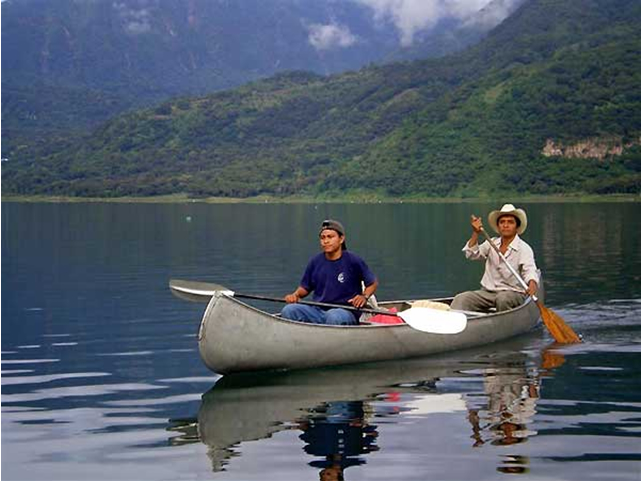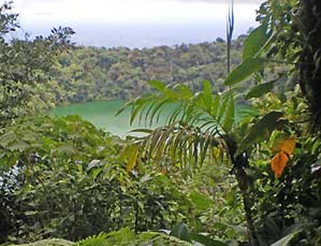- In Guatemala there are currently over 20 tourist destinations that have been certified by Green Deal. If you are interested in Green Deal Destinations in Guatemala, they are easy to find. The Eco-Index Sustainable Tourism is published every month and you can go to their website where all Guatemalan certified destinations are listed: Eco-Index Sustainable Tourism website.
|
Here is the information that Rainforest Alliance has on it's website regarding this important program
The Rainforest Alliance's sustainable tourism program is working with scores of governmental and non-governmental organizations. We helped create the Sustainable Tourism Network of the Americas, which currently includes 60 member organizations from 23 countries in the region.
As Secretary of the Network, the Rainforest Alliance has the responsibility of making sure that tourism businesses, local communities and tourists themselves understand how they can benefit from and contribute to sustainable tourism in the countries that safeguard a wealth of biodiversity and endangered ecosystems.w
See a list of the certification programs that are members of the network.
The Rainforest Alliance has signed cooperative agreements with over 15 tour operators in four different countries. These companies agree to promote tourism certification programs and businesses, to motivate other suppliers to join in the best management practices program and to educate travelers about ways to conserve biodiversity and reduce tourism's negative impact through their travel choices.
http://eco-indextourism.org/en/partners
|
Sustainable Tourism
Introduction
With more than 800 million people traveling each year, tourism is a growing source of revenue for people living in areas that are especially rich in plants and animals -- and threatened with destruction. While tourism can lead to problems such as waste, habitat destruction and the displacement of local people and wildlife, it also has the potential to provide incentives for conservation.
Sustainable tourism is not just limited to areas of ecological significance, but actively aims to reduce negative impacts in a holistic way, in urban, rural, and wilderness areas. Issues confronted include economic viability, socio-cultural sensitivity, and environmental sustainability, at destinations of natural and cultural significance, in both mass tourism and the various niche tourism segments. Sustainable tourism not only examines and responds to the needs of the present, but how current actions will also reduce negative impacts in the long term.
|
Ecotourism is a type of sustainable tourism that emphasizes conserving nature and improving the lives of local people in rural and wilderness areas.
More and more tourism businesses are voluntarily undergoing audits by certification programs that grant a seal of approval for demonstrated environmentally or socially sound practices. Not only do these labels serve as useful marketing tools, but they can motivate the industry to develop more environmentally-friendly products. They can also help consumers make more informed travel choices. The ultimate success of tourism certification as a conservation tool rests on whether or not it is based on a trusted, reliable standard, and on the degree to which the industry and consumers worldwide demonstrate their support.
|
Tourism is a private sector activity, driven in large part by international hotel chains, tour companies and other businesses. Making tourism more sustainable requires careful planning at many levels and the participation of all potential stakeholders, particularly of local communities in and around destinations. While adopting more sustainable practices is inherently complex, many tourism operations have already taken steps toward becoming more environmentally and socially responsible.
A number of the world's tourism companies, from hoteliers to tour operators, are in the throes of restructuring their management and operations to reduce consumption of water, energy and other resources, and to improve the management, handling and disposal of waste. After completing the training process, businesses may then seek tourism certification with one of the existing voluntary certification programs. The Rainforest Alliance works with these programs to help them achieve credibility and widespread recognition.
In its position as secretariat for the Sustainable Tourism Certification Network of the Americas, the Rainforest Alliance is responsible for education and publicity -- spreading the word among tourism businesses, local communities, governments and travelers about the benefits of sustainable tourism, particularly in the world's most biologically rich countries.
Photos by Josep Ross
Fuente: http://www.guatemala-times.com/travel/travel-tips/724-sustainable-tourism-in-guatemala.html





